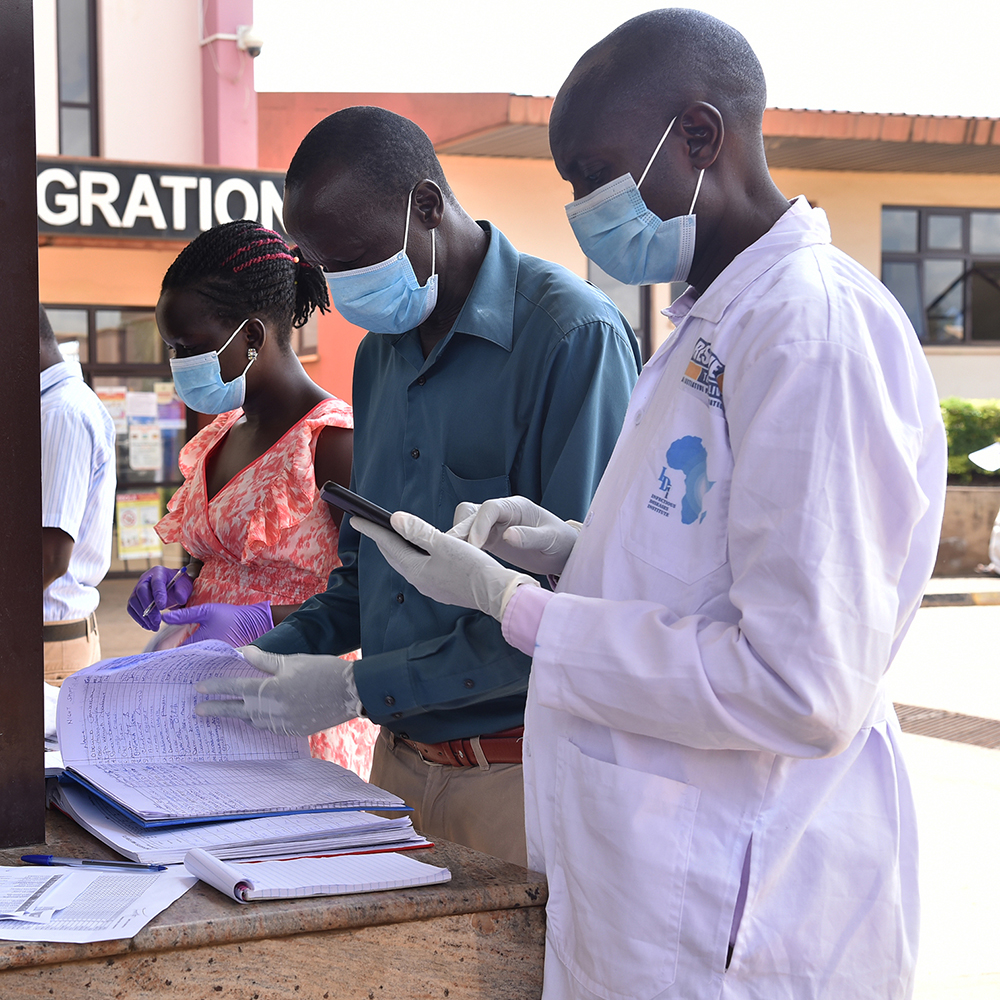
Since March 2020, Vital Strategies and its Resolve to Save Lives initiative has rapidly built a robust COVID-19 response unit to support countries with a range of interventions to reduce COVID-19 transmission while preserving essential services and building health system capacity. In 63 countries, we provide expert technical and strategic policy advice and serve as honest brokers, with recommendations rooted in science and evidence. Our COVID-19 Risk Communication Hub, helps governments devise effective strategies while clearly and consistently communicating the risks and benefits of measures to prevent and control COVID-19.
With funding from Bloomberg Philanthropies and other donors, we mobilize resources, resolve operational bottlenecks, and work to generate political will for appropriate public health action at local, national and global levels. In the United States, we are working with a number of jurisdictions to develop a contact tracing system that will enable health authorities to contain transmission as lockdowns and stay-at-home orders are lifted.
Here is some of the work we’ve been doing.
In-Depth Science Review
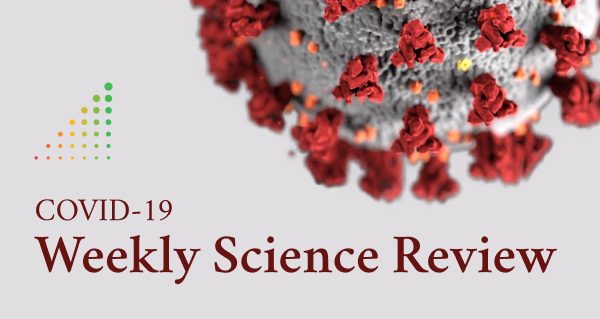
Prevent Epidemic’s science review provides insights into new and emerging scientific evidence related to COVID-19 geared toward both experts and the general public.
Partnership for Health Cities COVID-19 Response Center
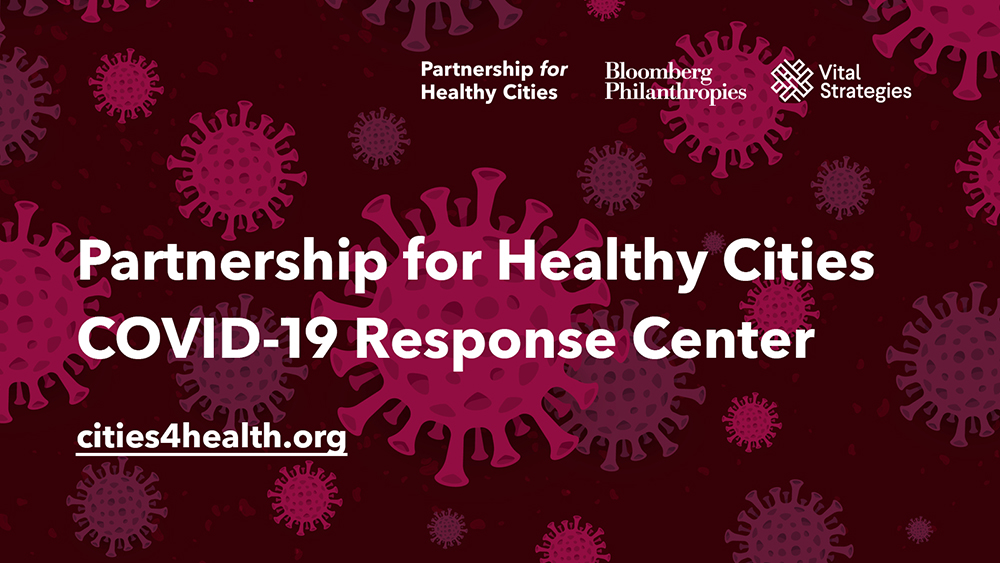
The COVID-19 pandemic has proven most intense in urban areas, placing cities at the forefront of the response to this unprecedented public health crisis. The Partnership for Healthy Cities COVID-19 Response Center serves as an online platform for mayors, city officials and public health practitioners to support their efforts to address the COVID-19 crisis. Since its launch, it has been accessed by people in 127 countries, and offers the latest tools and technical resources geared toward urban challenges, including an online library and weekly webinar series, for cities at every stage of the pandemic.
COVID-19 Resources for People who use Drugs and other Vulnerable Communities
For people who use drugs, COVID-19 is an epidemic upon an epidemic. We have partnered with the Harm Reduction Coalition, Higher Ground Harm Reduction, and Reynold’s Health Strategies to create facts sheets and a resource page that address the unique needs of vulnerable communities at higher risk of getting COVID-19. The resources have been disseminated by harm reduction organizations and providers throughout the U.S.
“Box It In”: A 4-Step Action Plan to Reduce COVID-19
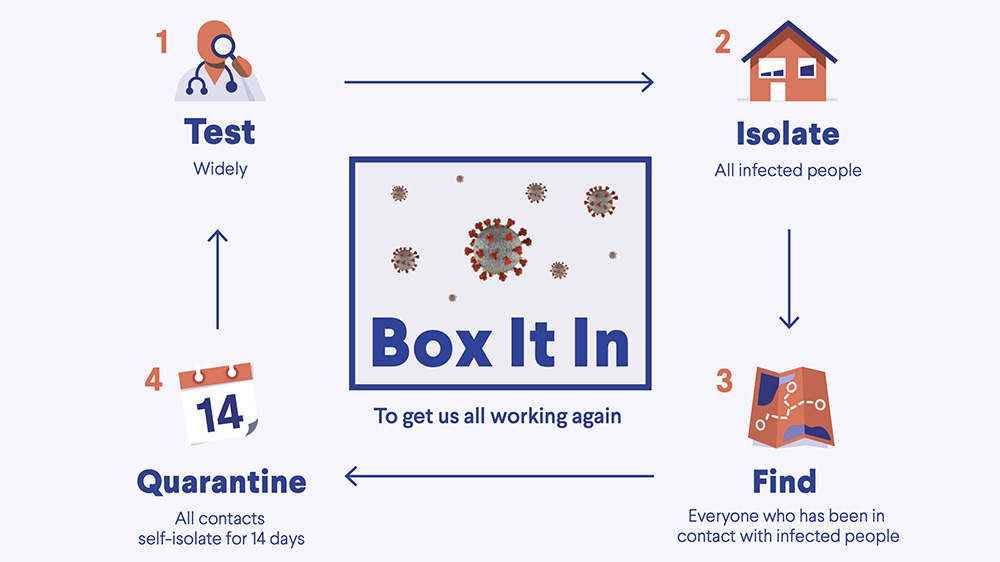
Dr. Tom Frieden, President and CEO of Resolve to Save Lives, unveiled a detailed report outlining a plan to “box in” the virus. Box It In relies on four essential public health practices: test, isolate people with infections, contract trace, and quarantine.
COVID-19 Interactive Playbook
This online resource to helps decision-makers at the local, subnational and national level, manage and adapt their COVID-19 responses as they move through different phases from preparedness through recovery.
Contract Tracing Program in New York Supported by Vital Strategies
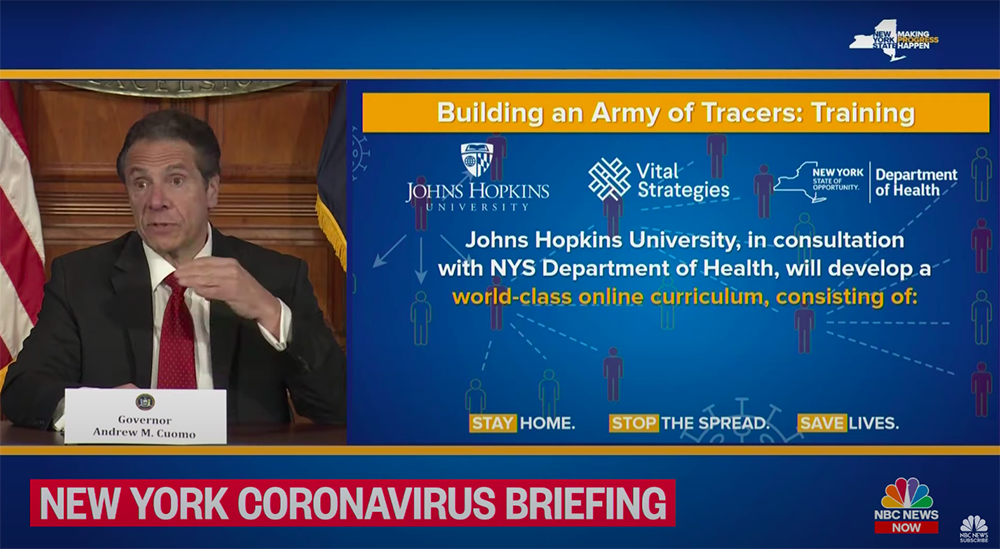
New York Governor Andrew Cuomo and Mayor Michael Bloomberg announced an ambitious contact tracing program to manage COVID-19 in the New York tristate area. The program, the largest ever launched in the U.S., is funded by a grant from Bloomberg Philanthropies. Vital Strategies role is to provide technical and operational advice, including assisting New York State Department of Health staff to develop digital solutions and call center protocols. The team will also lead efforts to increase community participation in and support for the tracing process.
Responding to COVID-19 in Africa: Using Data to Find a Balance
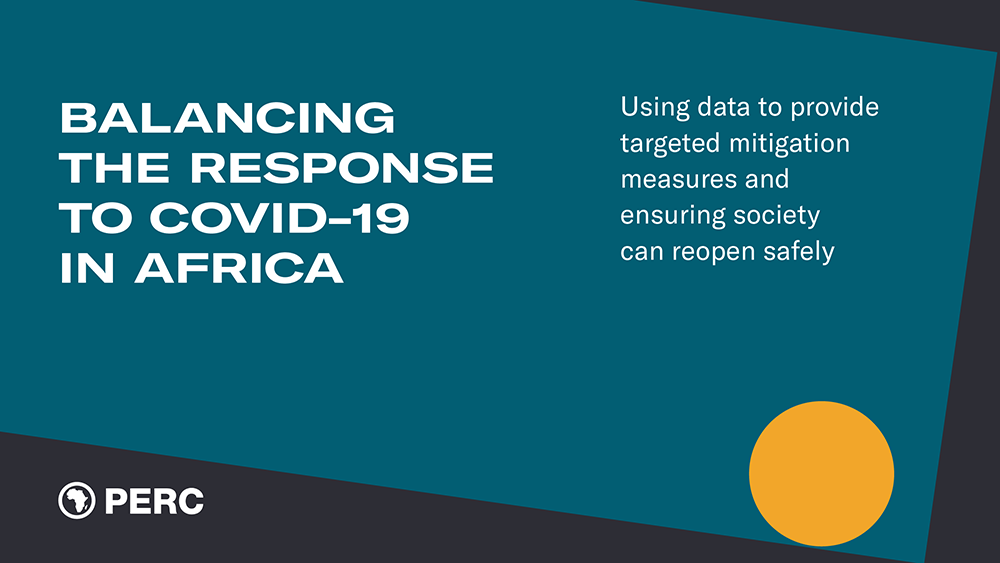
The Partnership for Evidence-Based Response to COVID-19 (PERC) is a public-private partnership that supports evidence-based measures (such as closures and cancellations) to reduce the harms of COVID-19 on African Union Member States. In early May, we published the report, Responding to COVID-19 in Africa: Using Data to Find a Balance (available in French and English). Nineteen subsequent country-specific reports have now been published.
Color-Coded Alert Level Systems for COVID-19

“Staying Alert: Navigating COVID-19 Risk Toward a New Normal” provides a four-tiered framework for governments to support clear decision-making, improve accountability and transparency, and communicate with the public to ensure needed behavior change. Using color-coded levels, similar to other warning systems, it breaks down lifesaving interventions into easy-to-understand and easy-to-follow guidelines.
Quantifying the True Impact of COVID-19: Rapid Mortality Surveillance Tool
The technical package, Revealing the Toll of COVID-19: A Technical Package for Rapid Mortality Surveillance, helps guide governments in rapid mortality surveillance, informing decision-making based on the true impact of COVID-19 within their countries. It builds on existing surveillance and national civil registration and vital statistics (CRVS) systems wherever possible, providing fit-for-purpose guidance for implementation in low- and middle-income countries.
A Hub for COVID-19 Public Education Media Campaigns
Vital Strategies launched a COVID-19 Risk Communication Hub to enable governments to rapidly create and share public education media campaigns. This digital platform allows governments and NGOs to access more than 200 media resources in a dozen languages. It includes original material vetted by experts, curated materials from around the globe, and technical guidance that can be used to create campaigns that empower and protect people throughout the COVID-19 response.
In addition to these resources, we’ve published numerous fact sheets in multiple languages, op-eds, interviews, and carried out mass and social media campaigns to help limit the transmission of COVID-19, build health system capacity, and maintain essential services during the pandemic.
Learn more at preventepidemics.org